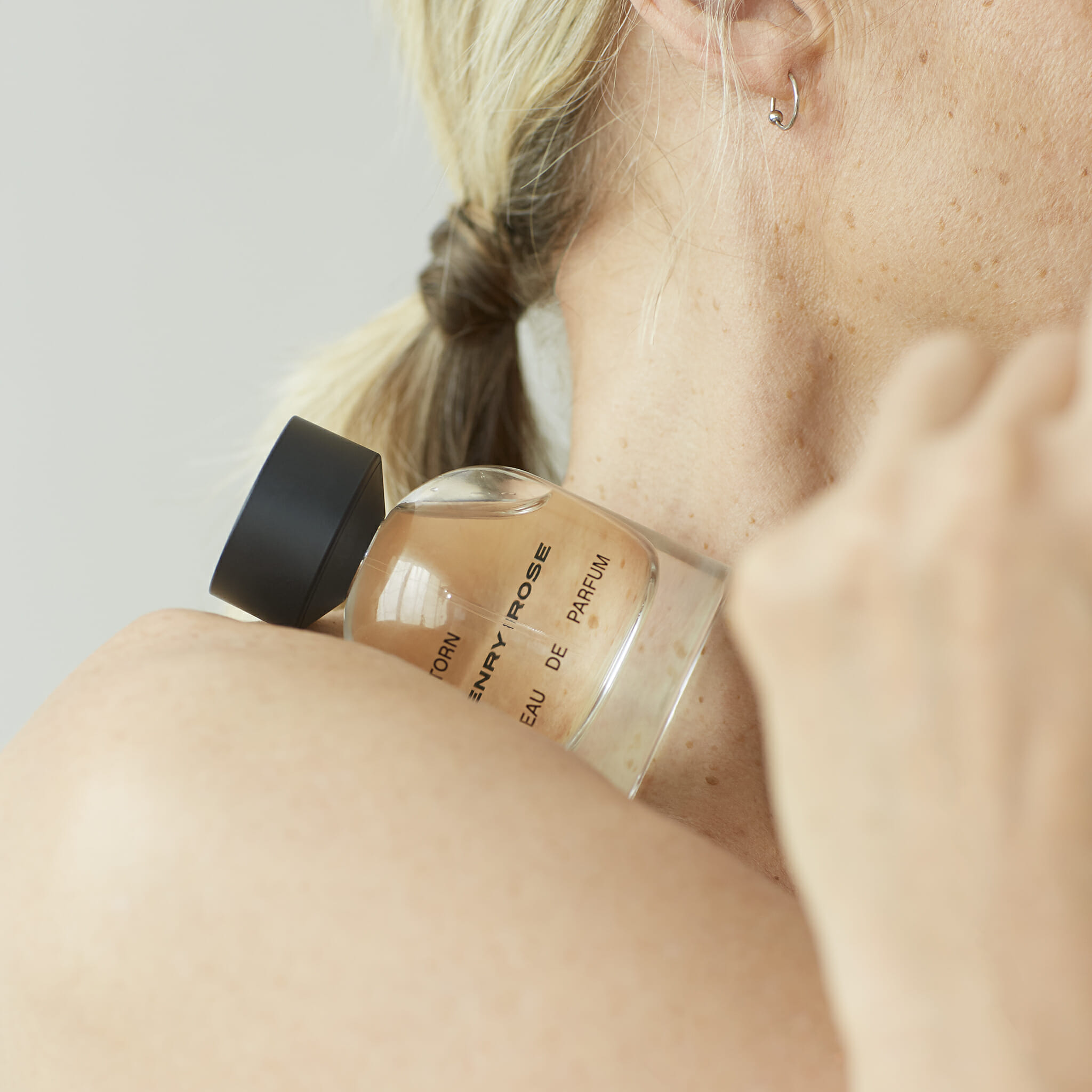Scent is tied to memory more than any other sense, which is why a single sniff of an Amaretto Sour can instantly catapult me back to the sad, seedy bars of my early twenties. The fragrance industry is built upon our emotional ties to scents and the memories they evoke. It’s one of the reasons Chanel No.5 has been the best-selling perfume in the world for 98 years. But we’re in the midst of a major turning point in the beauty industry, one that not even nostalgia can withstand.
The clean beauty movement, once seen as a niche category, has changed the way we view our beloved day-to-day products. Even if you haven’t made the switch to “natural” products, perfumes or otherwise (no judgement—my last fragrance purchase was Cloud by Ariana Grande), you’ve probably felt its impact. Drugstore brands like Dove and Secret have launched aluminum-free deodorants. CVS has vowed to eliminate parabens, phthalates and preservative ingredients from its store-brand products.
But the fragrance industry has been slower to change. In fact, many of the leaders in clean fragrance—which, up until recently, was a term used to describe perfumes that smelled like fresh laundry—are still smaller indie labels. One of those brands is Strange Invisible Perfumes, a Los Angeles-based botanical fragrance company founded in 2000 by self-taught perfumer Alexandra Balahoutis, whom I got in touch with to learn, once and for all, what makes a perfume “natural.”
So… what is natural perfume?
Generally speaking, natural fragrances use natural and essential oils from plants as their main source of, well, fragrance. “But that answer might vary depending on who you ask,” explains Balahoutis. “To me, it means no synthetic fragrances or flavors, and no isolates—‘natural’ or otherwise.” (It’s worth noting that some natural perfume brands do still use isolates in their formulas, though they’re natural, as opposed to synthetic.)
Ah, yes, isolates. (What is an isolate?)
A natural isolate, according to the Natural Perfumers Guild, is “a molecule that was removed/isolated from a natural fragrance material” (i.e., the single odor molecule is distilled from something in nature, instead of being created in a lab). In perfume-land, this usually means molecules like citrus and rose, which are extracted from fruits and flowers using a distillation technique. Synthetic isolates, on the other hand, are isolates that have been produced through lab techniques, like the use of bacteria or fungi.
How can you extract the materials without isolates?
For brands like Strange Invisible Perfumes, who choose to formulate sans any isolates whatsoever, the process involves hydrodistillation, which, according to the brand, is “a gentle immersion method that captures the complete aromatic profile of a plant.” Read: you’re getting the smell of the entire plant, not just the individual scent molecule.
Fine, but how harmful can a daily spritz or two of synthetic perfume really be?
“If I wear lipstick [made with synthetic ingredients], it isn’t going to impinge upon the health of the person sitting across from me at lunch,” says Balahoutis. (Perfume allergies are much more common than you think, and can result in headaches and wheezing, among other symptoms.)
The major issue, though, is the common use of phthalates in synthetic perfumes, which extends their longevity (more on that in a sec). The endocrine-disrupting chemical is known to mess with hormone activity, but the FDA doesn’t require brands to list the materials that go into a fragrance—which is why you often just see “fragrance” on an ingredient list.
Hormones aside, according to the American Academy of Dermatology, fragrance is also the number one cause of cosmetic contact dermatitis (which causes rashes, redness, stinging, etc.).
Which ingredients are typically avoided when formulating a natural perfume (vs. a synthetic one)?
Generally, the same shelf life-enhancing stuff that natural skincare brands avoid: parabens and phthalates.
So natural fragrances have a shorter shelf life?
Yup. Synthetics generally have a shelf life of about three to five years, while natural perfumes, sans preservatives, have a “best before date” of about two years after opening. After that point, your perfume might darken in color, due to oxidation, and its scent can change (sometimes the top notes can dissipate, so it won’t smell as bold as it used to).
Any other differences between natural and synthetic fragrances?
“Natural fragrance is more likely to vary on the skin from one wearer to another,” says Balahoutis. “Botanical perfumes are also a lot less cloying and overpowering than synthetic ones.” Because of this, they may not last as long on skin. “I don’t see that as a bad thing, though. A lot of these artificial fragrances have to be applied so sparingly. If you use more than a drop, you end up smelling like a duty-free cart blew up on you.” In fact, many natural perfume brand offerings come in rollerballs or smaller bottles, since the delicate scents are meant to be reapplied throughout the day—a very chic mid-day activity, if you ask me.
Source: Should We All Switch to Natural Perfume? – Man Repeller













